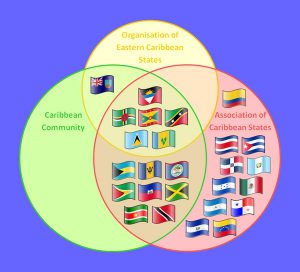Go Lean Commentary
Bedrock, Baby!
This is the lesson being learned in San Francisco for the new Salesforce Tower: If you’re going to build a skyscraper, make sure it has a good foundation. While a building can go up with a weak foundation, there will be structural problems along the way. See Appendix VIDEO for the story of the Millennium Tower sinking, and leaning.
This is an important lesson for the Caribbean; there is a need for integration, consolidation and collaboration among the Caribbean member-states. But, we need a good foundation; we need full participation from all the neighbors (Dutch, English, French and Spanish speaking islands). Just look at this photo here, depicting that the French Antilles territories of Guadeloupe and Martinique are “next door” to English-speaking Caribbean island nation-states:

(The island of Saint Martin is shared as a French territory and Dutch territory – this is considered a legal condominium; St Bartholomew is also on the list of current French Caribbean islands; but French Guiana – on the South American mainland next to Suriname completes the list of French territories; Haiti gained independence from France in 1804).
 This is the assertion of the movement behind the book Go Lean … Caribbean. This book declares that Caribbean regional governance is deficient and inadequate; there must be a regional integration that integrates the entire region. Yes, the existing Caribbean Community (CariCom) integration effort without the French territories is like building a skyscraper on a shaky foundation. What a skyscraper really needs is: Bedrock, Baby!
This is the assertion of the movement behind the book Go Lean … Caribbean. This book declares that Caribbean regional governance is deficient and inadequate; there must be a regional integration that integrates the entire region. Yes, the existing Caribbean Community (CariCom) integration effort without the French territories is like building a skyscraper on a shaky foundation. What a skyscraper really needs is: Bedrock, Baby!
What Caribbean integration really needs is: Complete participation of all the neighbors in the neighborhood.
This is the purpose of this commentary, to lament the inadequacies because of Caribbean disunity. This is the continued focus of this series of commentaries on the joke (absurdity) of the premise that there is some Caribbean unity; this is a mirage. This submission is 3 of 4 from the Go Lean movement. The urging is that the full Caribbean – all 30 member-states – must confederate and consolidate; otherwise our communities will not thrive, maybe, not even survive. The assessment is that the prior attempts of nation-building – without some sort of alliance – is just a joke!
The other commentaries in the series are cataloged as follows:
- Caribbean Unity? What a joke – Tourism Missteps
- Caribbean Unity? – Ross University Saga
- Caribbean Unity? – No Freedom of Movement in/out of French Antilles
- Caribbean Unity? – Religion’s Role: False Friend
All of these commentaries relate to “how” the stewards for a new Caribbean can finally foster unity in this region. The previous formal exercises in regional integration were flawed at the foundation; this includes the current Caribbean Community or CariCom plus the previous attempt among the English-speaking islands: the disastrous West Indies Federation, and the attempt in the Dutch-speaking islands, the now-defunct Netherlands Antilles. These many iterations ignored the bedrock foundational principle of: Liberty, Equality and Fraternity.
Those 3 principles sound familiar …
Yes, they are the values of the French Revolutionary movement. This is relevant because the French are also among the World Powers that discovered, exploited and colonized the Caribbean. To this day, they claim the afore-mentioned 4 territories in the region.
This commentary is not a criticism of the French eco-system or history, except for calling out their failure to integrate with their Caribbean neighbors. The country of France was always front-and-center in the enlightenment movement as their Declaration of the Rights of the Man and of the Citizen of 1789, together with Magna Carta, the English Bill of Rights, and the United States Bill of Rights, inspired in large part the 1948 United Nations Universal Declaration of Human Rights.[4]
Human rights – or Liberty, Equality and Fraternity – does not fit the description of colonies in these French Antilles. They are being administered remotely from Metropolitan France (Paris) rather than exercising autonomy to partner with their next door neighbors. As a result of this failing, we have no Freedom of Movement between the French Antilles and their neighbors – but there is Freedom of Movement in the European Union (and the Schengen Area). See the plight highlighted in this news story:
Title # 1: Dominican family facing expulsion from Martinique
A Dominican family of nine have been threatened with expulsion from Martinique, one year after fleeing there in the aftermath of hurricane Maria, local news reports have said.
The family, seven children and their parents, have been asked to leave Martinique this Thursday, August 16, 2018, according to Martinique 1Ere.
The online publication said the Dominican immigrants have all been living at the home of the children’s grandmother in the community of Prêcheur.
However, since arriving in Martinique the visitors could not obtain a residence permit and must leave Martinique for their native Dominica, Martinique 1Ere reported.
The Mayor of the area, Marcellin Nadeau, is reportedly opposed to the expulsion and has cited the historical links of the community with Dominicans.
Hurricane Maria blasted across Dominica on the night of September 18, 2017, with torrential rain and gusts of some 160 mph.
Damage to the Island was estimated at over $EC 2 billion and some one fifth of the population is said to have sought refuge in other countries in the aftermath of the storm.
Source: St. Lucia Times – posted August 15, 2018; retrieved August 29, 2018 from: https://stluciatimes.com/2018/08/15/dominican-family-facing-expulsion-from-martinique/—————-
Title # 2: Martinique: Supporters mobilise against expulsion of Dominican family
Residents of the community of Prêcheur in Martinique Friday morning began mobilising to prevent the expulsion of a Dominican family, local news reports say.The nine Dominicans had sought refuge in the French overseas territory following the passage of Hurricane Maria, which devastated Dominica last year.
According to Martinique 1 Ere, since 6:30 Friday morning, several inhabitants of Prêcheur, began mobilising to prevent the departure of Durand family.
The family, seven children and their parents, had been living with the children’s grandmother in Martinique for the past year.
They were due to leave Martinique Friday because they do not have a residence permit.
Local news reports said the family made several attempts to obtain the permit but failed to do so.
They were originally due to leave on Thursday, August 16, but the authorities gave them a few more hours to prepare for their departure, it was reported.
Residents of the community where the visitors have been staying have stated their intention to block access to the port at Fort de France to prevent the Dominicans from leaving, Martinique 1 Ere has reported.
The online publication quoted lawyer, Camille Célénice, as saying that a request for a residence permit must be filed Friday morning in the presence of the Mayor of Prêcheur, Marcellin Nadeau.
Nadeau is reported to be opposed to the move to expel the Dominican family, citing the historical links of the town with its neighbours from Dominica.
Source: St. Lucia Times – posted August 17, 2018; retrieved August 29, 2018 from: https://stluciatimes.com/2018/08/17/martinique-supporters-mobilise-against-expulsion-of-dominican-family/
It is apparent from this article, that refuge-seekers from hurricane-damaged areas seek refuge in their neighborhoods, first. It is only logical that displaced people will only want to move the shortest distances possible. If your island is only 40 miles away, then despite the divergent colonial heritage, that proximity overrides any cultural affinity.
Culture can move and adapt to a land; a land cannot move and adapt to a culture.
The Go Lean book serves as a roadmap for the introduction and implementation of the Caribbean Union Trade Federation (CU), an intergovernmental entity to empower all of the Caribbean member-states – the independent and dependent territories. This new regime for the Caribbean needs the islands in the French Antilles. But, the French Antilles need the CU, too. Accordingly, there is a lot of discord in those lands; see this opening anecdote from the Go Lean book on Page 17:
Anecdote # 3
| French Caribbean – Organization & Discord
1. Overseas departments are constituencies of France that are outside metropolitan France. They have the same political status as metropolitan departments. As integral parts of France and the European Union, overseas departments are represented in the National Assembly, Senate, and Economic and Social Council, vote to elect European Parliament (MEP), and also use the Euro as their currency. Under the 1946 Constitution of the Fourth Republic, the French colonies were defined as overseas departments. Since 1982, following the French government’s policy of decentralization, overseas departments have elected regional councils with powers similar to those of the regions of metropolitan France. As a result of a constitutional revision that occurred in 2003, these regions are now to be called overseas regions; though there is no difference in relevance or function. o Guadeloupe (Basse-Terre & Grande-Terre); plus dependencies: Les Saintes, Marie-Galante, La Désirade 2. Overseas collectivities are first-order administrative divisions of France. These constitute some former French overseas territories and other French overseas entities with a particular status, all of which became collectivities by constitutional reform on 28 March 2003. For the Caribbean, they include: o Saint Martin – the northern part of the island shared with a Dutch Territory There is recent history of discord in the French Caribbean. Saint Barthélemy has a more developed and prosperous economy than its previous administrative “big brother” Guadeloupe. Duty-free port attractions, retail trade, high-end tourism and its luxury hotels/villas have increased that island’s standard of living for its citizens, even exceeding metropolitan France. Plus, unlike most Caribbean islands, the population of Saint “Barths” is mostly of European ancestry. With the 2003 constitutional reforms, the populations of the French territories of Saint Barthélemy and Saint Martin were given the choice to remain within France or alter their status; they voted in favor of secession from Guadeloupe and to form separate overseas collectivities of France. In July 2007, these island communes were officially detached from Guadeloupe and became two separate French overseas collectivities with their own local administration and own deputies in the French National Assembly and Senate. There is also discord in Guadeloupe and Martinique. The average salary in Guadeloupe is lower than in mainland France while the unemployment and poverty rates on both islands are double those found in metropolitan France; these islands suffered the 2nd and 3rd highest unemployment rates in the European Union (2007), and #1 in youth unemployment. In January/February 2009, an umbrella group of approximately fifty labor unions and other associations called for a €200 ($260 USD) monthly pay increase for Guadeloupe and Martinique’s low income workers. The protesters had proposed that authorities “lower business taxes as a top up to company finances” to pay for the €200 pay raises. Employers and business leaders in Guadeloupe had said that they could not afford the salary increase. The strike lasted 44 days, during the high season, and escalated to “the verge of revolt”, finally ending with an accord in March 2009 in which the French government agreed to raise the salaries of the lowest paid by the requested €200 and granted the petitioners top 20 demands. Tourism suffered greatly during this time and affected the 2010 tourist season as well; the islands were believed to have lost millions of dollars in tourism revenues due to cancelled vacations and closed hotels. The strikes exposed deep ethnic, racial, and class tensions and disparities – discord – within the French Caribbean territories. <—————————-> |
Hurricanes are a serious threat for Caribbean life. This is true for the French Caribbean as well. There is nothing that Paris can do to eliminate the threat! (Notwithstanding the COP 21 Paris Accords to mitigate Greenhouse Gases to retard the effects of Climate Change).
All the Caribbean must band together to cope. This includes all islands of all colonial heritage. This was the opening declaration in the Go Lean book (Page 5), quoting the lyrics of the popular 1970 song “Lean On Me”:
Second Verse
If there is a load you have to bear
That you can’t carry
I’m right up the road
I’ll share your load
If you just call me
The current governance in the Caribbean is inadequate for dealing with the challenges of Climate Change; this is affecting all facets of our society: economics, security and governance. Rather than an intra-island focus, all these lands need to look to the full region and then convene, consolidate, collude, confederate and collaborate with each other to make the homelands better places to live, work and play. A regional construct is the focus of the technocratic CU; it is designed to shepherd the economic engines, while also guarding against all security challenges – including preparation and response for natural disasters.
The Go Lean/CU roadmap will employ strategies, tactics and implementations to impact its prime directives; identified with the following 3 statements:
- Optimize the economic engines in order to grow the regional economy to $800 Billion & create 2.2 million new jobs.
- Establish a security apparatus to ensure public safety and protect the resultant economic engines.
- Improve Caribbean governance to support these engines, including a separation-of-powers between the member-states and CU federal agencies, including Self-Governing Entities.
This directive transcends national borders, languages or culture. It just delivers …
This was always the hope for the Caribbean Single Market and Economy (CSME), the initiative spurred by CariCom; but it never delivered. This new regime embraces the spirit of CariCom – the need for integration – but with an execution foundation that goes down to the bedrock.
The book Go Lean…Caribbean – available to download for free – opened with an honest assessment there must be a regional interdependence. This assessment was pronounced in the opening Declaration of Interdependence (Pages 12 – 13):
i. Whereas the earth’s climate has undeniably changed resulting in more severe tropical weather storms, it is necessary to prepare to insure the safety and security of life, property and systems of commerce in our geographical region. As nature recognizes no borders in the target of its destruction, we also must set aside border considerations in the preparation and response to these weather challenges.
xi. Whereas all men are entitled to the benefits of good governance in a free society, “new guards” must be enacted to dissuade the emergence of incompetence, corruption, nepotism and cronyism at the peril of the people’s best interest. The Federation must guarantee the executions of a social contract between government and the governed.
xvi. Whereas security of our homeland is inextricably linked to prosperity of the homeland, the economic and security interest of the region needs to be aligned under the same governance. Since economic crimes … can imperil the functioning of the wheels of commerce for all the citizenry, the accedence of this Federation must equip the security apparatus with the tools and techniques for predictive and proactive interdictions.
xxiv. Whereas a free market economy can be induced and spurred for continuous progress, the Federation must install the controls to better manage aspects of the economy: jobs, inflation, savings rate, investments and other economic principles. Thereby attracting direct foreign investment because of the stability and vibrancy of our economy.
The Go Lean book provides 370-pages of turn-by-turn instructions on “how” to adopt new community ethos, plus the strategies, tactics, implementations and advocacies to execute so as to transform the Caribbean society, even the French Antilles. Consider the Chapter excerpts and headlines from this sample on Page 239 entitled:
10 Ways to Impact French Territories
| 1 | Lean-in for Caribbean Integration The CU will allow for the unification of the region into one market, thereby creating a single economy of 30 member-states for 42 million people with the scale to effect change; the CU does not involve sovereignty. The treaty includes the French Overseas Territories of Guadeloupe, Martinique, Saint Martin and Saint Barthélemy, but not French Guiana initially. Though France is one of the biggest economies, French economic prosperity has not always extended to these islands |
| 2 | Trading Partners based on Nature not Politics One original motive of French colonialism was the facilitation of trade. That need is even more pronounced now. But with the changes of globalization, technology and the demographic regionalization it is more fitting to trade with neighbors, based on natural location, rather than political alignment. The CU extends that push with this Trade Federation. |
| 3 | Homeland Security Pact – NATO style |
| 4 | Disaster Preparation & Response Mother Nature, and the reality of hurricanes, plays no favorites for one island versus another due to political alliance. The CU will better plan/prepare/respond, with a professional Emergency Management Agency and recover with elite financial products (i.e. reinsurance sidecars) powered by capital markets to restore economic engines in the islands. |
| 5 | Caribbean Dollar and the Caribbean Central Bank |
| 6 | Emigration Circuit Breaker |
| 7 | EU Participants |
| 8 | Cruise Line Collective Bargaining |
| 9 | Paris Hand-off / Proxy |
| 10 | Host Country Entitlements |
The Caribbean must foster a better homeland that allows for Free Movement of People … and also better disaster preparation and response. This Go Lean movement has previously detailed many related issues and advocacies for the French Caribbean and their full participation in this regional construct; consider this sample of previous blog-commentaries:
| https://goleancaribbean.com/blog/?p=13319 | Making a ‘Pluralistic Democracy’ – Freedom of Movement |
| https://goleancaribbean.com/blog/?p=12581 | State of the Union – Annexation: French Guiana |
| https://goleancaribbean.com/blog/?p=11287 | Creating a Legacy in Pro-Surfing in Martinique |
| https://goleancaribbean.com/blog/?p=10554 | Welcoming the French |
| https://goleancaribbean.com/blog/?p=10043 | Caribbean Integration Plan for Greater Prosperity |
| https://goleancaribbean.com/blog/?p=382 | Guadeloupe, Martinique, St Maarten Join the ACS |
The reasons why people abandon a beloved homeland is due to 2 reasons: “push” and “pull” factors. “Push” would refer to the resultant deficient infrastructure forcing stakeholders to abandon the community, and “pull” would refer to the perception that there are better economic opportunities elsewhere. The French Antilles have many of the same problems as the rest of the Caribbean. Societal defects abound, to the point that many of the people – and institutions – flee their homelands. This is true even more so right after a disastrous storm – a “push” factor. In the foregoing news articles, the displacement drama was associated with the aftermath of Category 5 Hurricane Maria in Dominica. Since all Caribbean member-states are “in the same boat”, all territories-countries should “pick up an oar” and collaborate on solutions.
(The absolute latest news on this Dominican family: Stay of Execution on Deportation – https://stluciatimes.com/2018/08/29/martinique-decision-pending-on-expulsion-of-dominican-family/).
In summary, the Go Lean roadmap seeks to reboot and relaunch the integration effort. But this time, with all Caribbean member-states (30), not just the English-speaking, but partnering with the French Antilles and Spanish-speaking states as well. Due to our Climate Change realities, our region must reform and transform the Caribbean’s societal engines so as to better allow for our tropical realities.
Let’s be better – together.
All Caribbean stakeholders – including European governments (i.e. France and The Netherlands) – are urged to lean-in to this roadmap for change … and empowerment. We need “all hands on deck” to make this region a better place to live work and play. 🙂
Download the book Go Lean … Caribbean – now!
Sign the petition to lean-in for this roadmap for the Caribbean Union Trade Federation.
—————-
Appendix VIDEO – The Leaning Tower of San Francisco – https://youtu.be/qKtlZc-u9TU
Published on November 5, 2017 – The Millennium Tower opened to great acclaim with high-priced, posh apartments. But those accolades and property values are sinking, along with the building’s foundation. No Bedrock! Jon Wertheim reports.
See full story here: https://www.cbs.com/shows/60_minutes/video/nn9f_o573SfUTgnxuseZn5qbLYNtHCQI/the-leaning-tower-of-san-francisco/
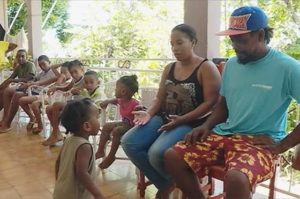
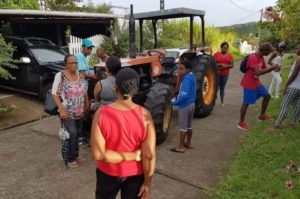
 The terms French Caribbean, French West Indies or French Antilles all refer to the five territories currently under French sovereignty in the Antilles islands and related areas of the Caribbean. There are two organizational types:
The terms French Caribbean, French West Indies or French Antilles all refer to the five territories currently under French sovereignty in the Antilles islands and related areas of the Caribbean. There are two organizational types: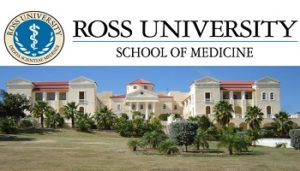 The leader of the Lucian Peoples Movement, Therold Prudent, has declared that the Ross University saga involving Dominica and Barbados, is an indictment on the Caribbean Community (CARICOM), the regional grouping to which both countries belong.
The leader of the Lucian Peoples Movement, Therold Prudent, has declared that the Ross University saga involving Dominica and Barbados, is an indictment on the Caribbean Community (CARICOM), the regional grouping to which both countries belong.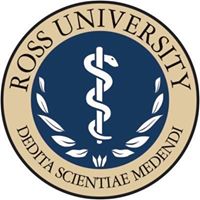 The medical school was founded in 1978 as The University of Dominica School of Medicine by
The medical school was founded in 1978 as The University of Dominica School of Medicine by 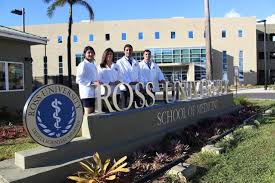

 At one point, recently, I had a California address, Michigan Drivers License and Florida car registration; all at the same time. This is demonstrative of a country – United States of America – where stakeholders have ‘Freedom of Movement’. This is a feature of a Single Market.
At one point, recently, I had a California address, Michigan Drivers License and Florida car registration; all at the same time. This is demonstrative of a country – United States of America – where stakeholders have ‘Freedom of Movement’. This is a feature of a Single Market.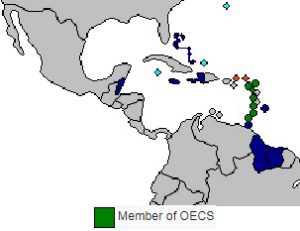
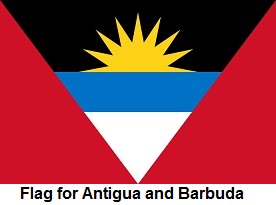 Acting Prime Minister, Attorney General Steadroy Benjamin, on Saturday convened a meeting of the sub-committee of Cabinet responsible for managing the planning for natural disasters and their aftermath.
Acting Prime Minister, Attorney General Steadroy Benjamin, on Saturday convened a meeting of the sub-committee of Cabinet responsible for managing the planning for natural disasters and their aftermath.